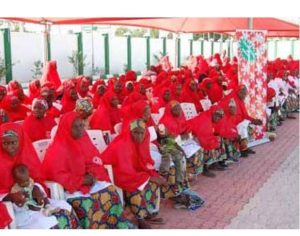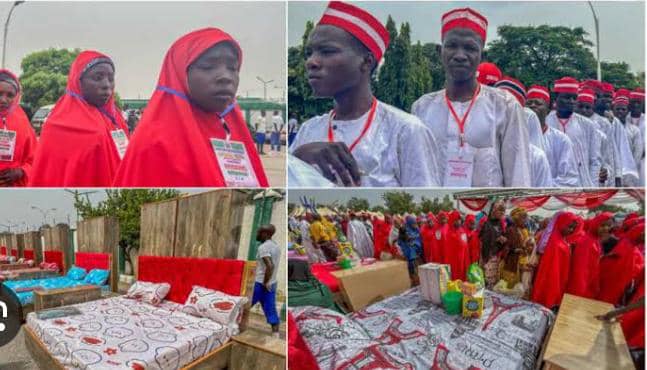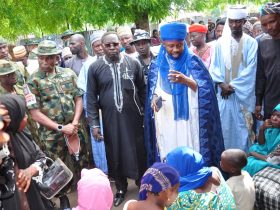Kano State Government Hosts Mass Wedding for 1,800 Couples
In an event held at the opulent Emir’s palace, the Kano State Government orchestrated a grand mass wedding, bringing together 1,800 couples from diverse backgrounds, including widows, divorcees, and unmarried individuals.
The ceremony, graced by notable figures such as Governor Abba Kabir Yusuf and Dr. Rabiu Kwankwaso, has left an indelible mark on the local community.
Under the guidance of the state government, a total of 3,600 men and women were joined together through this mass wedding program, underscoring Kano State’s commitment to uphold its cultural heritage and nurturing social unity. Newlyweds were also generously furnished with essential items like beds, bedding, food, and clothing, courtesy of the state government, ensuring a solid and supportive foundation for their married lives.

Governor Yusuf lauded the event as a testament to the state’s dedication to preserving its rich cultural traditions and the welfare of its citizens. He stressed that the mass wedding initiative not only cemented the bonds between couples but also showcased Kano State’s steadfast dedication to assisting its populace and venerating the institution of marriage.
The celebrations continued into the following day, featuring additional wedding ceremonies and a traditional “Walima” feast held at the Government House. This grand celebration deeply resonated with the people of Kano State, reflecting their values, unity, and the government’s unwavering commitment to safeguarding traditions and securing a promising future for residents.
Assessing the Impact of Government-Sponsored Mass Weddings on Citizens
While government-sponsored mass weddings may seem like a grand gesture, questions regarding their long-term advantages to citizens have emerged. Specifically, it raises concerns about the employment status of the newlyweds and their ability to provide for their families in the future.
The sheer scale of conducting weddings for over a thousand couples can undoubtedly be a considerable financial relief for many individuals, especially those from economically disadvantaged backgrounds. However, to ensure the sustained well-being of these families, it is crucial to assess the employment prospects of the newlyweds.
The effectiveness of such initiatives hinges on the extent to which they contribute to long-term financial stability.
A critical evaluation should focus on how many of the newlyweds are currently employed or have opportunities for gainful employment.
Equipping them with the skills and resources to secure their families’ future is an essential component of any government-sponsored mass wedding program. In this way, the event not only symbolizes a joyful union but also a pathway to economic security for the newlyweds and their future generations.









Leave a Reply